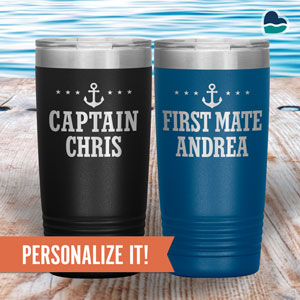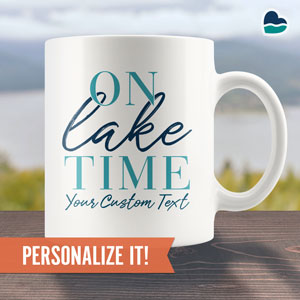Quincy Lakes, Washington, USA
Also known as: Quincy Lakes Wildlife Area, Quincy Lake, Evergreen Reservoir, Burke Lake, Stan Coffin Lake, Ancient Lakes
A surreal landscape greets visitors to north-central Washington’s Quincy Lakes Wildlife Area. Pothole lakes filled by water seeping through porous lava flows have left a number of small fishing lakes that are wildlife havens in this arid landscape. Nearly a desert, the area gets little rain. Farmers in the area depend on irrigation to grow crops on the fertile soil. The lakes form small pockets of wetlands…
Keep scrolling to read more.
Welcome to the ultimate guide to Quincy Lakes! Article topics include:
- All About Quincy Lakes
- Where to Stay
- Vacation Planning Tools
- Things to Do
- Known Fish Species
- Quincy Lakes Map
- Statistics / Weather / Helpful Links
- Quincy Lakes Gifts
Looking for Quincy Lakes cabins or other accommodations? Save time and use this interactive map to find, compare and book at the best rates. Or explore more of our favorite travel partners.
This post contains affiliate links. If you click and purchase, we may earn a small referral fee at no extra cost to you. Read our full disclosure.
Explore Area Hotels
Nearby offer more hotel accommodations:
All About Quincy Lakes, WA
A surreal landscape greets visitors to north-central Washington’s Quincy Lakes Wildlife Area. Pothole lakes filled by water seeping through porous lava flows have left a number of small fishing lakes that are wildlife havens in this arid landscape. Nearly a desert, the area gets little rain. Farmers in the area depend on irrigation to grow crops on the fertile soil. The lakes form small pockets of wetlands and marsh that offer a sheltering oasis for birds of prey, eagles, shorebirds, songbirds, wading birds and waterfowl. Deer, small mammals, butterflies and insects join reptiles and amphibians which all depend on the trapped water to thrive here. During the spring and summer, wildflowers are ablaze in the wetter areas and greet the visitors who come here to hike and camp. The lakes are set within a valley formed by the prehistoric Missoula Flood, and the area is framed by 800-foot basalt ramparts showing evidence of several major lava flows.
The lakes within the Quincy Lakes Wildlife Unit are numerous, including Ancient Lake, Burke Lake, Caliche Lake, Stan Coffin Lake, Crater Lake, Martha Lake, Dusty Lake, H Lake, Quincy Lake, Evergreen Reservoir and other small ponds. The most visited of the lakes are Ancient Lakes, Evergreen Reservoir, Quincy Lake, Burke Lake and Stan Coffin Lake. The last four are popular fishing lakes and managed for specific game fish. Ancient Lakes are a series of small pothole lakes on a popular trail system that backpackers enjoy for primitive camping.
Evergreen Reservoir is formed by a small dam installed in 1950 by the Bureau of Reclamation to store water that would be lost to run-off. The reservoir is larger than the other lakes, spanning about 235 acres. Reaching a depth of 54 feet, Evergreen Reservoir is considered an irrigation holding tank, so water levels can drop considerably within a period of hours if water is needed. Evergreen has three boat launch areas, although one is primarily useful for car-top boats. There are vault toilets but no other services. The lake contains largemouth bass, smallmouth bass, bluegill, crappie, pumpkinseed, perch, walleye and a few tiger muskie. Bass are regularly stocked in hopes they will reduce the numbers of smaller bluegills. Always check current regulations before fishing. There are no restrictions on boat motors or bait allowed.
Only a few hundred yards from Evergreen Reservoir, Burke lake is about 70 acres and is managed for rainbow trout. Trout are usually stocked in late summer and allowed to grow over the winter for excellent spring fishing. As an added attraction, the Quincy Valley Tourism Association sponsors an annual Trout Derby, with specially-tagged trout released in the lake to offer cash prizes to some lucky anglers. Burke Lake also has several boat launch ramps and allows primitive camping in certain areas. The area is usually peaceful and the scenery spectacular. Burke Lake is a favorite for fly fishermen.
Stan Coffin Lake is about 41 acres and has recently been ‘rehabilitated’ to remove carp and other rough fish. The lake was then stocked with largemouth bass and bluegill fingerlings. The bass are catch-and-release only, resulting in a number of large fish that make for some exciting angling. Water depths reach 20 feet. There are two boat launch ramps on the north shore of the lake, and primitive camping is allowed. The lake is quite productive for perch and crappies, usually producing a shore lunch with little effort. Stan Coffin Lake was formed in 1953 by drainage from the Columbia Basin Irrigation Project. It is now a year-round lake owned by the Bureau of Reclamation and managed as a fishery and wildlife habitat by the Washington Department of Fish and Wildlife. The lake gets many visiting anglers during the summer season of March 1 to October 1.
Quincy Lake, with 62 acres, is also managed for rainbow trout. Fishing from shore is productive. A boat launch is available, and primitive camping is allowed in certain areas. The lake is stocked and open to fishing only between March 1st to July 31st. After stocking, anglers can often fill their limit the next spring. There are no motor regulations on the lake, but the lake is small enough to be covered easily with a trolling motor. All four lakes are accessible by vehicle with hiking paths between them. Other small lakes in the area will require a hike to reach.
The Quincy Lakes Wildlife Area is increasingly becoming a tourism destination in its own right. Only a few miles from the Columbia River, Quincy Lakes is less than 10 miles from the popular Crescent Bar Recreation Area. Private lodgings near Crescent Bar Resort offer numerous guest rentals, hotels, resorts and condos, with swimming, water-skiing and boating available on the Columbia River. Recreational activities bring large numbers of vacationers to this area of the Columbia River with amenities such as golf courses, restaurants, shopping and scenic vistas. In the past decade, it was found that grapes grew exceptionally well in the area near Quincy Lakes, and now the area is known also for excellent wineries.
The Quincy Lakes Wildlife Area encompasses over 15,000 acres within the 192,000-acre Columbia Basin Wildlife Area with its miles of hiking trails, hunting and fishing opportunities. A vehicle access pass which authorizes camping is included with any hunting or fishing license for WDFW (Washington Dept. of Fish & Wildlife) lands. Those wanting to explore or camp who don’t wish to hunt or fish are required to secure a Discover pass, obtained from any business that sells hunting and fishing licenses.
Real estate is available on the private lands surrounding this huge parcel of recreational reserve. Less than 150 miles from either Seattle or Spokane, Quincy Lakes Wildlife Area is easily accessible from I-90 for a weekend visit. Bring the kids and the camper or a tent and hiking boots. Marvel at the rugged escarpments and learn about the ancient lava flows. Enjoy a glass of the local wine around the campfire at dusk. Life is good here. The Quincy Lakes await-as do the fish.
*Statistics are for Evergreen Reservoir only.
Things to Do at Quincy Lakes
These are some activities in the Quincy Lakes, WA area visitors can enjoy:
- Vacation Rentals
- Fishing
- Boating
- Swimming
- Water Skiing
- Golf
- Camping
- Hiking
- Hunting
- Wildlife Viewing
- Birding
- Shopping
What Kind of Fish Are in Quincy Lakes?
Quincy Lakes has been known to have the following fish species:
- Bass
- Black Bass
- Bluegill
- Carp
- Crappie
- Largemouth Bass
- Muskellunge
- Perch
- Pike
- Pumpkinseed
- Rainbow Trout
- Smallmouth Bass
- Sunfish
- Tiger Muskellunge
- Trout
- Walleye

Find Places to Stay at Quincy Lakes
If you’re considering a Quincy Lakes lake house rental or hotel, we’ve made it super easy to find the best rates and compare vacation accommodations at a glance. Save time using this interactive map below.
Note: These are affiliate links and we may earn a small commission if you click and make a purchase. Read our full disclosure policy here.
More Sites to Book a Quincy Lakes Vacation
Our interactive Quincy Lakes lodging map above is an easy tool for comparing VRBO rental homes and nearby hotels with Booking.com, but there could be times when you need to expand your search for different types of accommodations. Here are some other lake lodging partners we recommend:
Quincy Lakes Statistics & Helpful Links

Lake Type: Artificial Reservoir, Dammed
Water Level Control: Bureau of Reclamation
Surface Area: 235 acres
Normal Elevation (Full Pond): 1,205 feet
Maximum Depth: 54 feet
Completion Year: 1950
More local lakes to explore in this area:
We strive to keep information on LakeLubbers as accurate as possible. If you’ve found something here that needs updating, please touch base by filling out our Content Correction form.
Shop Quincy Lakes Gifts
More Quincy Lakes news from LakeLubbers.com
- Advertise your vacation rental property or local business: DETAILS HERE
- The Quincy Lakes forum has been discontinued: HERE’S WHY
- New Quincy Lakes photos coming soon!
- You’re invited to join our lake-lovin’ community on Facebook and Instagram!
- Share this Quincy Lakes article with your fellow LakeLubbers:



